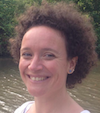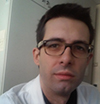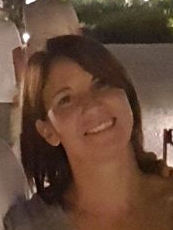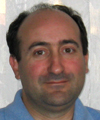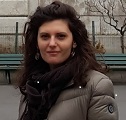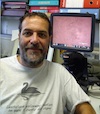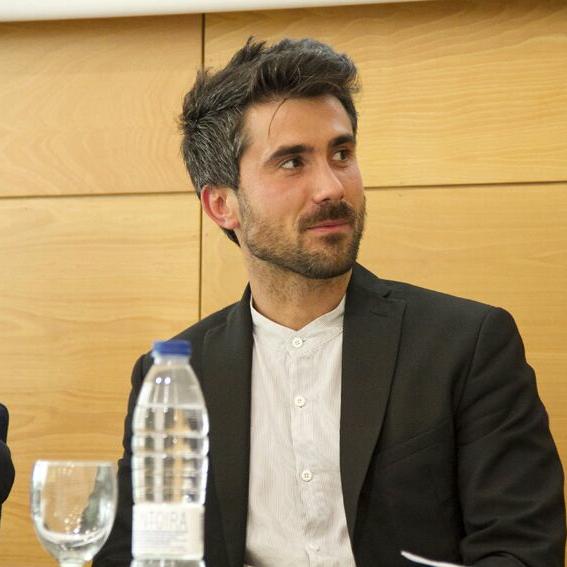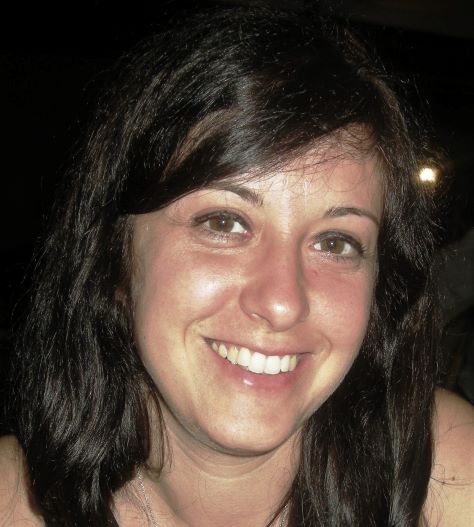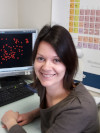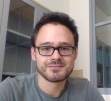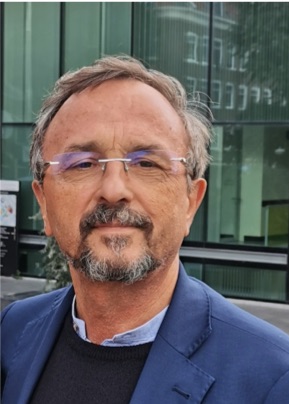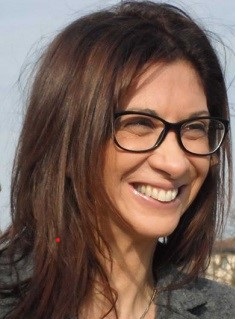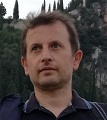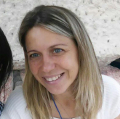Studying at the University of Verona
Here you can find information on the organisational aspects of the Programme, lecture timetables, learning activities and useful contact details for your time at the University, from enrolment to graduation.
Academic calendar
The academic calendar shows the deadlines and scheduled events that are relevant to students, teaching and technical-administrative staff of the University. Public holidays and University closures are also indicated. The academic year normally begins on 1 October each year and ends on 30 September of the following year.
Course calendar
The Academic Calendar sets out the degree programme lecture and exam timetables, as well as the relevant university closure dates..
| Period | From | To |
|---|---|---|
| I semestre | Oct 1, 2018 | Jan 31, 2019 |
| II semestre | Mar 4, 2019 | Jun 14, 2019 |
| Session | From | To |
|---|---|---|
| Sessione invernale d'esame | Feb 1, 2019 | Feb 28, 2019 |
| Sessione estiva d'esame | Jun 17, 2019 | Jul 31, 2019 |
| Sessione autunnale d'esame | Sep 2, 2019 | Sep 30, 2019 |
| Session | From | To |
|---|---|---|
| Sessione estiva | Jul 16, 2019 | Jul 16, 2019 |
| Sessione autunnale | Nov 19, 2019 | Nov 19, 2019 |
| Sessione invernale | Mar 11, 2020 | Mar 11, 2020 |
| Period | From | To |
|---|---|---|
| Sospensione attività didattica | Nov 2, 2018 | Nov 3, 2018 |
| Vacanze di Natale | Dec 24, 2018 | Jan 6, 2019 |
| Vacanze di Pasqua | Apr 19, 2019 | Apr 28, 2019 |
| Vacanze estive | Aug 5, 2019 | Aug 18, 2019 |
Exam calendar
Exam dates and rounds are managed by the relevant Science and Engineering Teaching and Student Services Unit.
To view all the exam sessions available, please use the Exam dashboard on ESSE3.
If you forgot your login details or have problems logging in, please contact the relevant IT HelpDesk, or check the login details recovery web page.
Should you have any doubts or questions, please check the Enrollment FAQs
Academic staff
 rossana.capuani@univr.it
rossana.capuani@univr.it
 vittoria.cozza@univr.it
vittoria.cozza@univr.it
 luca.pasetto@univr.it
luca.pasetto@univr.it
 claudio.tomazzoli@univr.it
claudio.tomazzoli@univr.it
 franco.zivcovich@univr.it
franco.zivcovich@univr.it
Study Plan
The Study Plan includes all modules, teaching and learning activities that each student will need to undertake during their time at the University.
Please select your Study Plan based on your enrollment year.
1° Year
| Modules | Credits | TAF | SSD |
|---|
2° Year activated in the A.Y. 2019/2020
| Modules | Credits | TAF | SSD |
|---|
3° Year activated in the A.Y. 2020/2021
| Modules | Credits | TAF | SSD |
|---|
| Modules | Credits | TAF | SSD |
|---|
| Modules | Credits | TAF | SSD |
|---|
| Modules | Credits | TAF | SSD |
|---|
Legend | Type of training activity (TTA)
TAF (Type of Educational Activity) All courses and activities are classified into different types of educational activities, indicated by a letter.
Methods in Molecular Biology and Genetics (2020/2021)
Teaching code
4S008190
Credits
12
Language
Italian
Scientific Disciplinary Sector (SSD)
AGR/07 - AGRICULTURAL GENETICS
The teaching is organized as follows:
laboratorio [1° turno]
Credits
6
Period
I semestre, II semestre
Academic staff
laboratorio [2° turno]
Credits
6
Period
I semestre, II semestre
Academic staff
teoria
Credits
6
Period
I semestre, II semestre
Academic staff
Learning outcomes
The course aims to provide basic knowledge of recombinant DNA technologies and methodologies applied to molecular genetic and genomic analysis. Frontal lessons will be introductory to traditional genetic methodologies and to the most advanced ones to analyze genes and their functions. Laboratory lessons will apply the background from frontal lessons by using the most common methodologies of molecular genetics used for prokaryotes and eukaryotes. At the end of the course the student will know the principal techniques related to the extraction, analysis and manipulation of nucleic acids; protein expression in heterologous systems; the techniques used for genetic transformation of animal and plant organisms; the methods for gene expression analysis and for studying protein-protein interactions. The acquired knowledge will enable the students to understand the methodological approaches used in scientific research in molecular genetics and to use molecular technologies for specific laboratory experiments.
Program
------------------------
MM: teoria
------------------------
1) Cloning: - Plasmid vectors, selection markers and reporter genes (e.g. GFP); - E. coli transformation - Selection of recombinants - Methods of cloning: (i) Vectors based on restriction enzymes; (ii) PCR amplification and cloning of DNA fragments through T/A cloning: pGEM vectors; (iii) Cloning mediated by DNA topoisomerase, TOPO Cloning; (iv) Cloning by recombination: Gateway and Golden Gate Assembly systems; 2) Genetic transformation of plants (leaf disks and protoplasts) and animals (Prof. Furini). 3) Bacteriophage λ, Cosmids, BAC, YAC, genomic libraries and cDNA libraries, transformation of yeast cells; 4) Genomic DNA extraction, plasmid DNA extraction, phage DNA extraction; 5) DNA and genome analysis by hybridization (Southern blotting) and amplification, molecular markers; 6) Sanger DNA sequencing, NGS sequencing and third generation sequencing; genome sequencing and genomics; 7) Random and site specific mutagenesis; 8) Genome editing, CRISPR/Cas9; 9) Forward and reverse genetics to study gene function, gene silencing (Prof. Bellin). 10) RNA extraction and gene expression analysis by Northern blotting, RT-PCR and Real Time RT-PCR; 11) Large-scale expression analysis, transcriptomic platforms based on microarray and RNA-Seq; 12) Reporter genes and their use for functional studies and gene expression analysis; 13) DNA-protein interaction in the regulation of gene expression: chromatin immunoprecipitation (ChIP), shift assay, luciferase assay (Prof. Zenoni) 14) Sub-cellular targeting for recombinant protein production in heterologous systems (comparison between prokaryotic and eukaryotic systems); 15) Description of the systems used to study the sub-cellular localization of a protein; 16) Factors that influence the stability of a protein and its evaluation; 17) Techniques used for the quantification of solubilized proteins (western blot, ELISA, enzymatic assays (Prof. ssa Avesani).
------------------------
MM: laboratorio
------------------------
Preparation of constructs for plant and yeast transformation. Students will clone the GFP gene in a TOPO-cloning vector and subsequently into a Gateway vector by recombination: The gene of interest will be amplified by PCR and cloned in a vector thanks to the activity of the DNA isomerase I. From this construct (entry clone), the gene of interest will be transferred by recombination in two different Gateway vectors (destination vectors), for the expression in plant and yeast. During the procedure, recombinant constructs will be amplified in E. coli and purified by miniprep procedure. Final constructs will be utilized for genetic transformation of plants (Prof. Furini) and yeast in following experience. Genomic DNA analysis: genomic DNA extraction. Evaluation of DNA yield and quality based on spectrophotometric analysis and evaluation on agarose gel. Set up and optimization of SSR marker analysis on known and unknown genotypes: sample preparation for analysis on capillary electrophoresis sequencer for size determination, scoring of results. Example of parentage analysis, varietal identification and genomic analysis based on linkage (Prof. ssa Bellin). Site-specific mutagenesis: planning of the mutagenesis, primer design for mutagenesis, PCR amplification and phosphorylation, ligation and digestion with DpnI for mutagenized plasmid enrichment, transformation of competent cells, recovery and screening of mutant plasmids and validation by evaluation of activity of the expressed protein (Prof. ssa Bellin). Gene expression analysis in a transgenic organism by real-time RT-PCR: Extraction of RNA from the transgenic organism and from the wild type. Evaluation of the quality and quantity of the extracted RNA, treatment with DNAse, reverse transcription and real-time RT-PCR reaction. Evaluation of the different levels of expression of the transgene in the wild type and in the transgenic organism by calculating the deltadeltaCt. (Prof. ssa Zenoni). Total Soluble Protein extraction from leaf tissue and from yeast and quantification. Evaluation of the yields of GFP production in plant systems and in yeast by ELISA and by fluorimetric analysis. (Prof. ssa Avesani)
Bibliography
| Activity | Author | Title | Publishing house | Year | ISBN | Notes |
|---|---|---|---|---|---|---|
| laboratorio | Terry A. Brown | Biotecnologie molecolari (Edizione 2) | Zanichelli | 2017 | 978-88-08-32096-4 | |
| laboratorio | Terry A. Brown | Biotecnologie molecolari (Edizione 2) | Zanichelli | 2017 | 978-88-08-32096-4 | |
| teoria | Terry A. Brown | Biotecnologie molecolari (Edizione 2) | Zanichelli | 2017 | 978-88-08-32096-4 |
Examination Methods
The final evaluation will be performed by a written exam, including open and multiple-choice questions concerning both the theory and practical activities. The final score will be calculated from the weighted averages of each part, including the evaluation of the laboratory reports. The positive evaluation of the exam concerning the parts given in the first term will be mandatory for assessing the exam of the second term.
Type D and Type F activities
Modules not yet included
Career prospects
Module/Programme news
News for students
There you will find information, resources and services useful during your time at the University (Student’s exam record, your study plan on ESSE3, Distance Learning courses, university email account, office forms, administrative procedures, etc.). You can log into MyUnivr with your GIA login details: only in this way will you be able to receive notification of all the notices from your teachers and your secretariat via email and soon also via the Univr app.
Graduation
List of theses and work experience proposals
| theses proposals | Research area |
|---|---|
| Studio delle proprietà di luminescenza di lantanidi in matrici proteiche | Synthetic Chemistry and Materials: Materials synthesis, structure-properties relations, functional and advanced materials, molecular architecture, organic chemistry - Colloid chemistry |
| Multifunctional organic-inorganic hybrid nanomaterials for applications in Biotechnology and Green Chemistry | Synthetic Chemistry and Materials: Materials synthesis, structure-properties relations, functional and advanced materials, molecular architecture, organic chemistry - New materials: oxides, alloys, composite, organic-inorganic hybrid, nanoparticles |
| Dinamiche della metilazione del DNA e loro contributo durante il processo di maturazione della bacca di vite. | Various topics |
| Risposte trascrittomiche a sollecitazioni ambientali in vite | Various topics |
| Studio delle basi genomico-funzionali del processo di embriogenesi somatica in vite | Various topics |
Attendance
As stated in the Teaching Regulations for the A.Y. 2022/2023, attendance is not mandatory. However, professors may require students to attend lectures for a minimum of hours in order to be able to take the module exam, in which case the methods that will be used to check attendance will be explained at the beginning of the module.

 +39 045 802 7949
+39 045 802 7949
